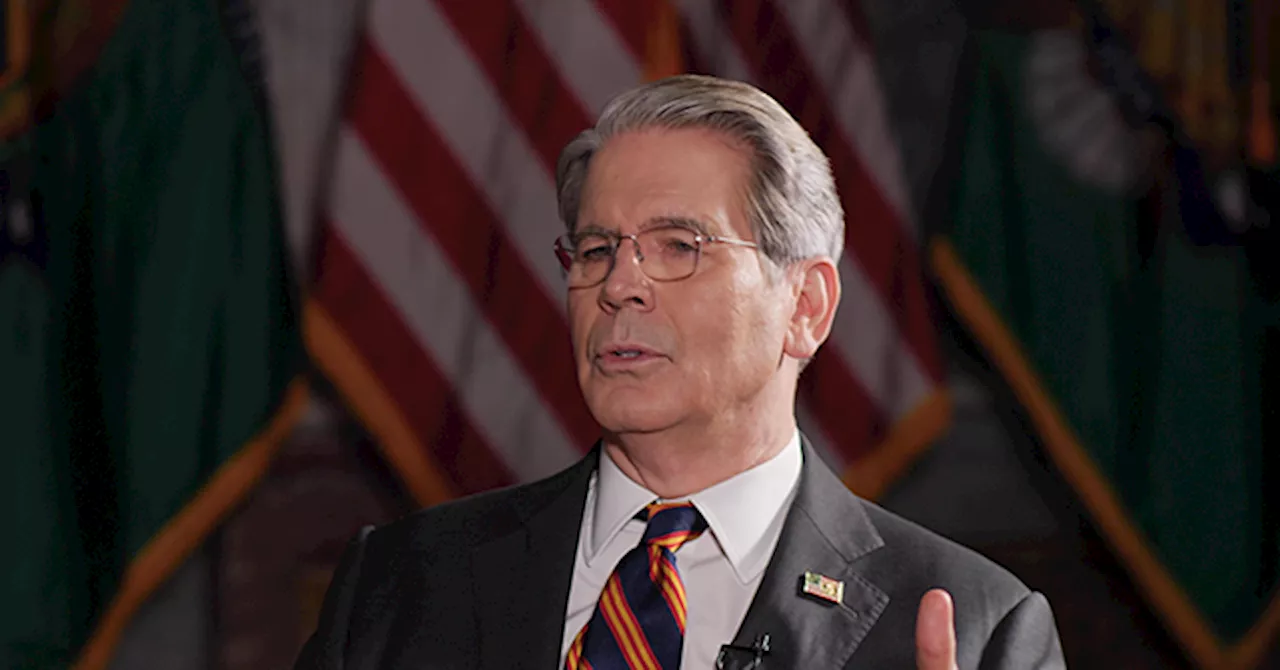An exclusive interview with Scott Bessent, a prominent figure in the MAGAnomics movement, sheds light on Donald Trump‘s economic policies, his successful career on Wall Street, and his ambitions within the Trump administration. Conducted on November 21, 2025, the discussion delves into various aspects of Trump’s economic strategy, including trade negotiations, inflation, and Bessent’s vision for the future.
Bessent, who has garnered attention for his contrarian views, expressed confidence in his ability to dismantle the arguments often presented by establishment media. He attributes this skill to his experience in debating at Yale as a professor, stating, “Policy is personnel. My biggest single trading day was the night of the 2016 election.” He noted that he had approached President Trump almost three years ago to express his desire to join the economics team, believing that the administration would be transformative.
Reflecting on his experiences, Bessent recounted attending a fundraiser for Hillary Clinton before the 2016 election, where he left convinced that she would lose. He contrasted himself with Larry Summers, a prominent figure in the Democratic establishment, suggesting that Summers’ motives should be scrutinized, especially in relation to his ties with influential global figures.
Trade Policy and Inflation Insights
The conversation shifted towards the Trump administration’s approach to trade negotiations. Bessent highlighted the strategy of applying maximum pressure to achieve favorable terms, noting that rival nations often express gratitude for the new deal conditions that emerge from these negotiations. He praised Trump’s deal-making skills and emphasized the administration’s focus on addressing inflation, which he identified as a critical issue for American workers.
Bessent identified three main factors impacting inflation: immigration, interest rates, and inflation itself. He expressed optimism that inflation would decrease significantly by 2026, referencing an upcoming study from the Council of Economic Advisers which indicates that inflation rates in Republican-leaning states are 50 to 60 basis points lower than in Democratic-leaning states.
The topic of rare earth materials also surfaced, with Bessent explaining the administration’s goal of “de-risking” supply chains from China instead of pursuing full decoupling. He noted that the production of rare earth magnets in the United States has resumed after 25 years, a development he believes could create thousands of jobs.
“We face challenges in pharmaceuticals, semiconductors, steel, and shipbuilding. These are strategic industries,” Bessent remarked. He asserted that while full decoupling from China is unnecessary, reducing risks in supply chains is vital. “President Trump has instructed pharmaceutical companies to bring production back to the U.S.,” he added.
National Security and Deregulation
During the interview, Bessent elaborated on the national security aspects of his role, emphasizing their significance and time demands. He offered guidance to Zohran Mamdani and discussed how deregulation is perceived as a cornerstone of the Trump administration’s economic agenda.
Bessent concluded the discussion by commending the interviewers for their analysis, stating, “Congratulations. You both get A’s for your early analysis.”
The insights provided by Bessent reflect the administration’s ongoing commitment to economic transformation and its approach to contemporary challenges. As the Trump administration continues to navigate complex issues, Bessent’s perspectives highlight the strategic thinking behind key economic policies.
